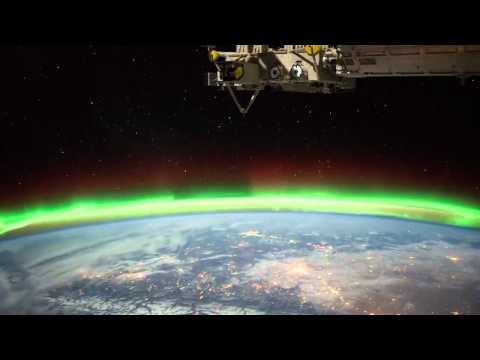Possible signs of life on Venus
CLARA SOUSA-SILVA: Findingsigns of life on other planetsbeyond the Earth would be away of answering the biggestquestions that we’vehad as a species so far. Where do we come from?Are we alone?Of course these questionsare not the exclusive purviewof scientists. People have been askingthem for as long asis any record of them beingable to ask these questions. What is special about thismoment and our role in itas scientist, is thatfor the first timewe’re actually able, becausewe have the tools to answerthese questions. JANUSZ PETKOWSKI: So a group ofscientists, led by Jane Greavesfrom the University of Cardiff,were looking for signs,for chemical signs on Venus,that shouldn’t belong there. And one of suchmolecules is phosphine. And they, unexpectedly,they actuallywere able to find a signalthat belongs to this molecule. So then, we racedto figure out whatcould be the reasonfor phosphine on Venus. And this is whereour MIT team comes. When we actually looked at allkinds of processes, chemicaland physical, that couldpotentially produce phosphinein Venusian environments. This is a atmosphere. The surface of the planet iscompletely, completely uninhabited. The atmosphere is the onlyplace in which life actuallycould in principle exist. There is a belt of clouds. And we concluded that there isno known chemical and physicalprocess that couldconceivably produce phosphine. So this adds to themystery of Venus. And then, this opens arather bold possibilitythat there might be somethingliving in the clouds of Venus. CLARA SOUSA-SILVA: Phosphineis my favorite molecule. And it looks moreor less like this,a phosphorous atom ontop, and three hydrogensin the base of this pyramid. And phosphine is an extremelydifficult molecule to make. It is only spontaneouslymade in extreme environments. Such as what you find in thehellish depths of Jupiterand Saturn. It is otherwise only made eithernaturally by life on Earthor artificially by humans,as a fumigant for example. JANUSZ PETKOWSKI:So the questionis why it is actuallya staggering discovery. Why it is so important?Well, there are a couple ofangles that you can actuallyanswer that question. One, the first,is that phosphineis absolutely unexpected. It cannot be producedon the rocky planets. At least we don’t know ofany known processes, chemicalor physical, that canproduce phosphine. Which means, eitherour understandingof the physics and chemistryof the rocky planetsis severelyincomplete, or there issome chemistry, that is sounbelievably weird, that itcould even be life. CLARA SOUSA-SILVA: If wehave indeed found lifeoutside the Earth, it puts ourown existence into perspective. But it also tells us thatlife would be much morecommon than we first imagined. And there is a hugearray of possibilitiesout there in the galaxy of lifewith different biochemistriesand desire. And of course, ifwe have found liferight next door in aplanetary neighbor,that would be so cool.













